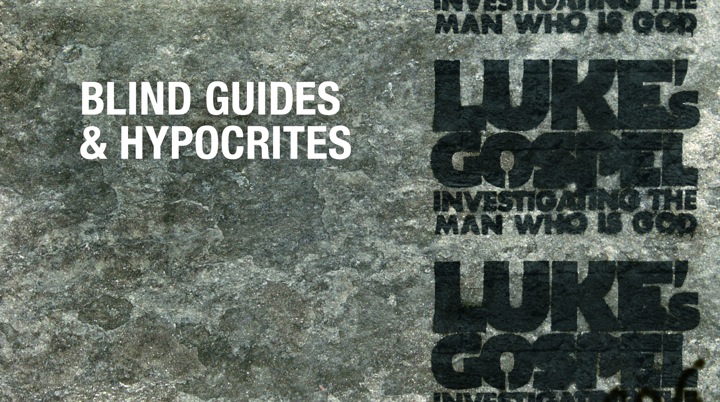In biblical language, the heart is the center of our thoughts, desires and feelings; it is the source of our good or bad works and thirst for our decisions. What comes from our heart allows us to recognize how our interior is. As the center of our decisions, the heart resembles the safe of a treasure which contains the very essence – the treasure. The heart is expected to reflect the attitude of the human person through his words and deeds; however, in some cases, what a person does or says doesn’t correspond with the contents of the heart. This is a clear example that the heart could be used for deception, which is most often understood as hypocrisy. What is hypocrisy? I would say that it is an attempt to deceive God; it is the falsehood of the heart, the illusion of man appearing to satisfy God by appearance, by actually deceiving oneself in seeking for a good name. It is an attitude we call cunning, ‘cleverness’, duplicity. While one may deceive his fellowman by his hypocritical behaviour, he/she can never deceive God who probes the content of the heart and discern hidden motives (cf. Jer. 17:10). Thus, we could say that a hypocrite is basically a forger, someone who tries to pay God with a false coin, someone who honours him with his lips while his heart is far from God (cf. Mt 15: 8).
On this 8th Sunday in Ordinary Time, Year C; after which we shall pause the Ordinary Time with the commencement of Lent on Ash Wednesday this week, the Church presents us the teachings of the holy sage, Ben Sira, and our Lord Jesus Christ, bringing about a unified truth, raising questions about the coherency between orthodoxy and orthopraxy (theory and practice), because what is at stake is whether we should believe what a person pronounces or if he or she is being hypocritical?
In the Gospel (cf. Lk. 6: 39-45), Christ puts it crystal clear: “Can one blind man guide another? Surely, both will fall into a pit (…) Why do you observe the splinter in your brother’s eye and never notice the plank in your own? How can you say to your brother, ‘brother, let me take out the splinter that is in your eye,’ when you cannot see the plank in your own?” Although Luke records that Jesus tells this parable to his disciples, the gospel of Matthew clearly explains that it was against the Pharisees that he exclaimed, “Leave them alone; they are blind guides of the blind. And when a blind man leads a blind man, they will both fall into a pit “(Mt 15:14). It was to the Pharisees, above all, that on several occasions Jesus shouted his hypocrites! And, behold, today this terrible exclamation, “Hypocrites,” is found in a discourse addressed to his disciples, and therefore also to us: “Hypocrite! Take the plank out of your own eye first, and then you will see clearly enough to take out the splinter that is in your brother’s eye.” Consequently, Christ puts a double comparison: that of the tree, which, if it is good, bears good fruit, and that of the man who speaks of the things in his heart.
In consonance, the First Reading (cf. Ecclesiasticus 27:1-8), the holy sage exhorts us exactly on this very personal self-criticism: “in a shaken sieve the rubbish is left behind, so too the defects of a man appear in his talk (…) The orchard where a tree grows is judged on the quality of its fruit, similarly, a man’s words betray what he feels.” Recalling that St. Bede says, “the treasure of the heart is the same as the root of the tree,” therefore, message of Ben Sira reminds us that the content of the heart would be finally uncovered and laid bare since the words (fruit) of his mouth speaks a lot about his deeds (the tree). Thus, the person who has a treasure of patience and perfect charity in his heart produces excellent fruits: he loves his neighbour and gathers the other qualities that Jesus teaches: he loves his enemies, he does good to those who hate him, he blesses those who curse him, he prays for what he slanders, he does not rebel against those who beat him or rob him, he always gives when asked, he does not complain about what they have taken from him, he does not want to judge and not to condemn, he corrects with patience and with affection those who err. But the one who has a treasure of wickedness in his heart does exactly the opposite: he hates his friends, he speaks evil of those who love him, and all other things condemned by the Lord.”
Dear friends in Christ, if we make a sincere examination of conscience and allow ourselves be judged by the Gospel, we will be obliged to admit, (and maybe displeased), that we are all hypocrites at one point in time or another. Christ tells us in Matthew 12:36-37: “So I tell you this, that for every unfounded word people utter they will answer on Judgement Day, since it is by your words you will be justified, and by your words condemned.” As such, Paul in the Second Reading (1Cor 15: 54-58), encourages us as Christians that God invested in us not to perish, but to be raised with Christ who destroyed death and has granted us victory. Therefore, we should never admit defeat, but keep on labouring earnestly that the good words we speak may correspond to the dictates of our hearts, enabling us to “flourish like the palm tree and grow like a Lebanon cedar, planted in the house of the Lord, and flourishing in the courts of our God…”, as put forward by the Psalmist (Psalm 91(92):2-3,13-16)
Shalom!
©Rev. Fr. Chinaka J. Mbaeri, OSJ


